FOR thousands of years, Ink has been the primary medium of painting and calligraphy in China.
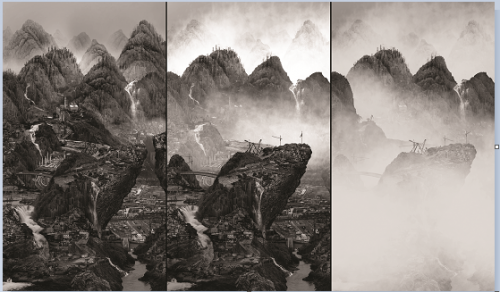
The tradition is culturally and historically diverse and demonstrates techniques and styles from various dynasties and schools. Ink art thus plays an important role in our knowledge and understanding of Chinese history and culture.
Currently showing at CMAG is “Ink Remix”, an exhibition featuring contemporary and historical ink-based works by 14 different artists from Mainland China, Hong Kong, and Taiwan. The exhibition seeks to challenge the traditional perceptions of and approaches to ink art – and as curator Sophie McIntyre suggests, “offers different ways of thinking about ink as a multifaceted and dynamic form of visual expression.” As implied in the exhibition’s title, the work combines, synthesises, and remixes ink with various other forms and materials – computer game imagery, rice paper, tofu, Coca-Cola and high heels all feature. Some of the work is conceptual, some outright gimmicky, some sharply symbolic.
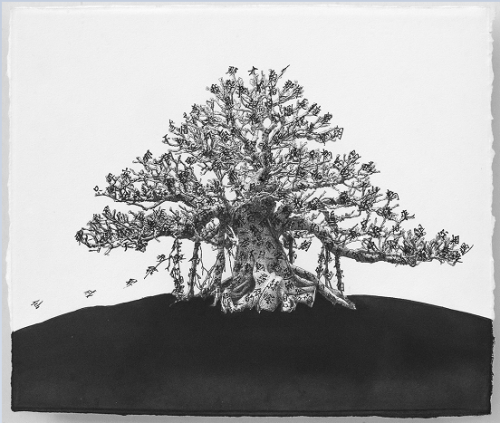
In the case of Charwei Tsai’s ‘Bonsai Series’ lithographs, we also encounter work that is incredibly elegant.
Particularly striking, however, are the audiovisual pieces. Chen Shaoxiong’s ‘Ink History’, for instance, chronicles key events spanning across the 20th century, including the end of imperial China, the rising of Mao and the Tiananmen Square massacre.
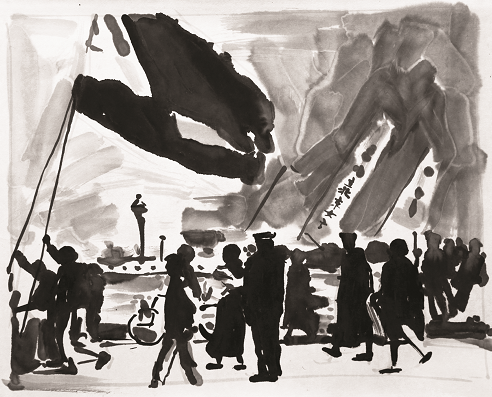
Chen assembles a montage of bold and stylized ink images fashioned from and inspired by photographs and memories. Complementing the animated sequence is an evocative soundtrack, featuring Chinese operatic music, revolutionary music, propaganda speeches and children’s voices – supplemented by a sped-up clock ticking sound, underscoring the piece’s time schemes.
Another impressive work is Yang Yongliang’s digital landscape installation ‘Rising Mist’. This piece presents a vision of a Shanghai dystopia and comments on themes such as environmental exploitation, air population, and consumerism. From a distance, the image looks serene, motionless – but close-up there is a flurry of activity and movement. We can see mining trucks and other machinery hard at work transporting the earth’s natural resources; water emanates from the surroundings and segments into a series of aqueducts and dams. A dense mist then slowly engulfs the city. As is common with audiovisual art, the immersive environment created in this installation unfortunately tends to be obscured by the noise of the exhibition’s other work.
“Ink remix” demonstrates the innovative ways in which contemporary artists from various backgrounds are dealing with the ink medium – an ancient medium and artistic tradition practiced over many centuries by the literati and social elite. The fact that certain of these works are subversive means that the exhibition tells us something of the themes and issues that concern contemporary Chinese, Hong Kong, and Taiwanese artists.
Who can be trusted?
In a world of spin and confusion, there’s never been a more important time to support independent journalism in Canberra.
If you trust our work online and want to enforce the power of independent voices, I invite you to make a small contribution.
Every dollar of support is invested back into our journalism to help keep citynews.com.au strong and free.
Thank you,
Ian Meikle, editor

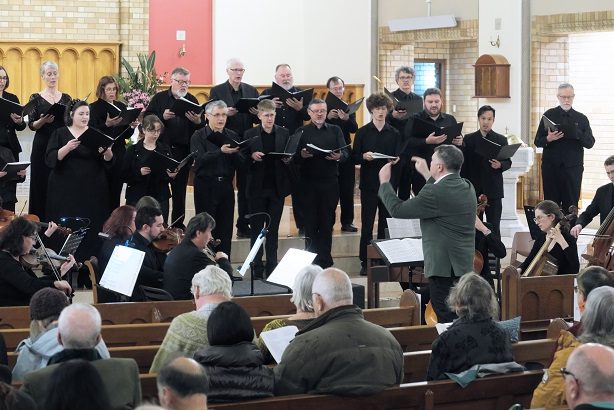
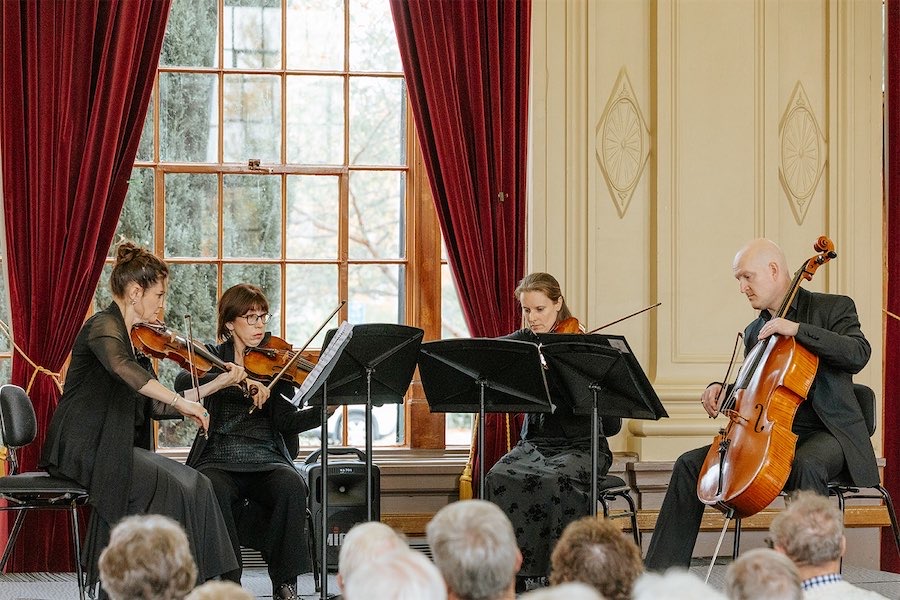

Leave a Reply